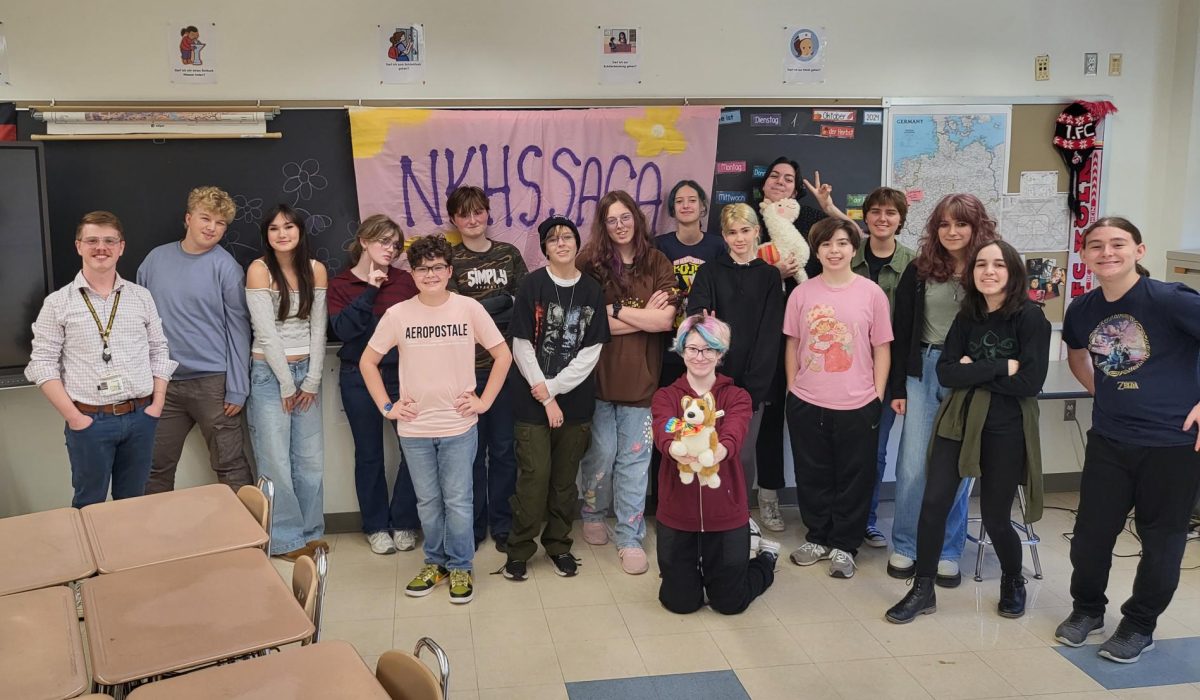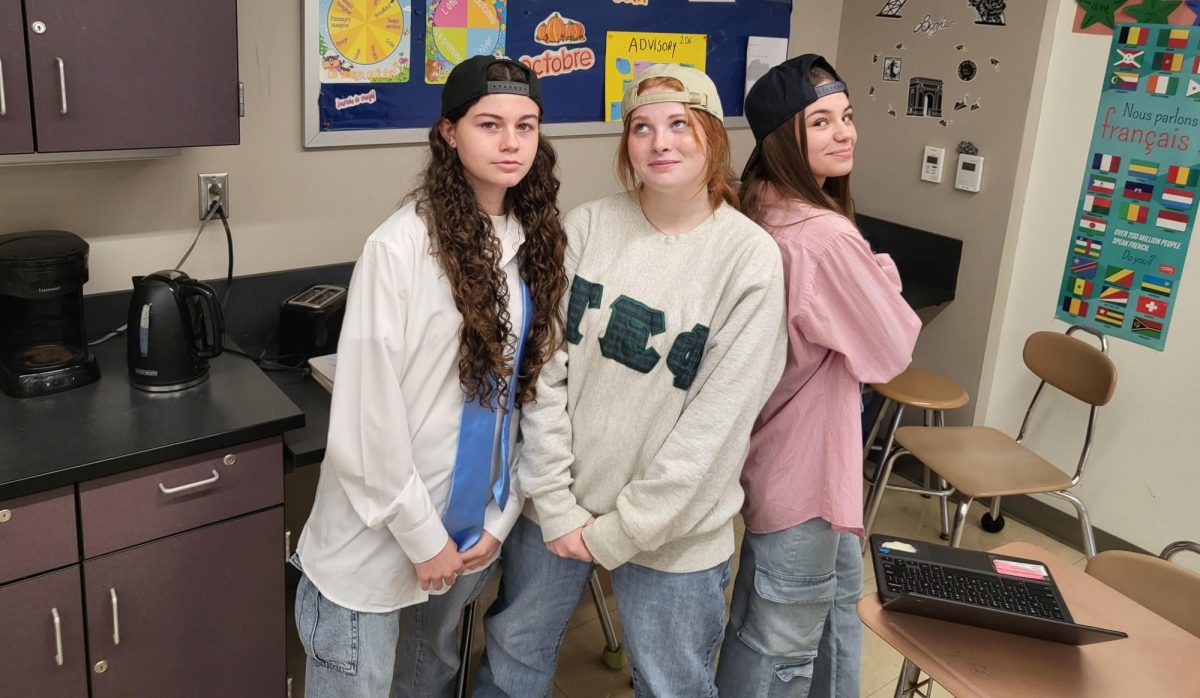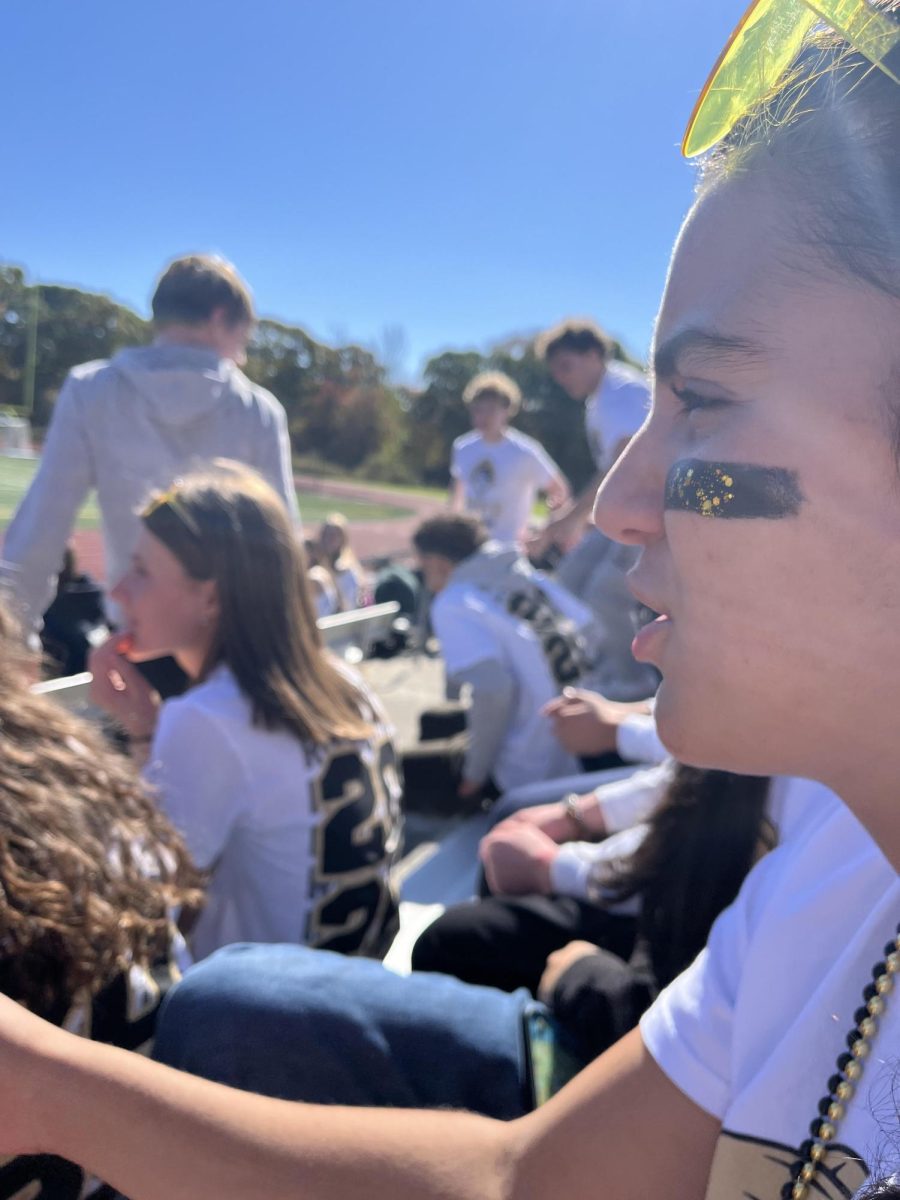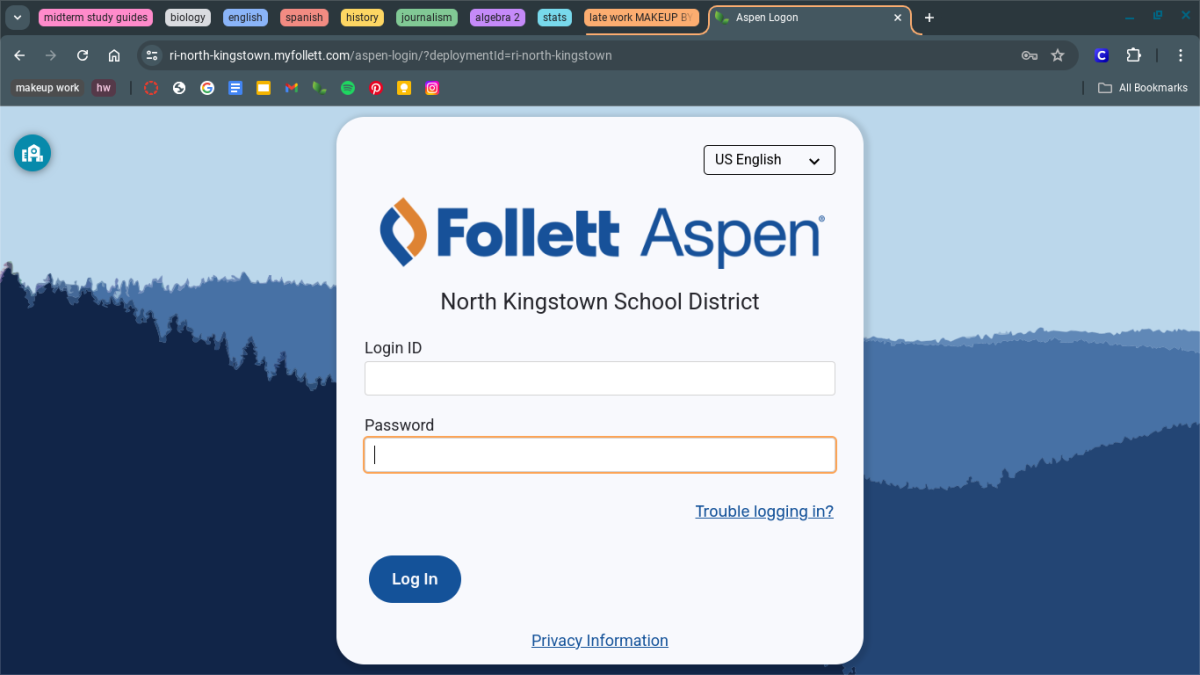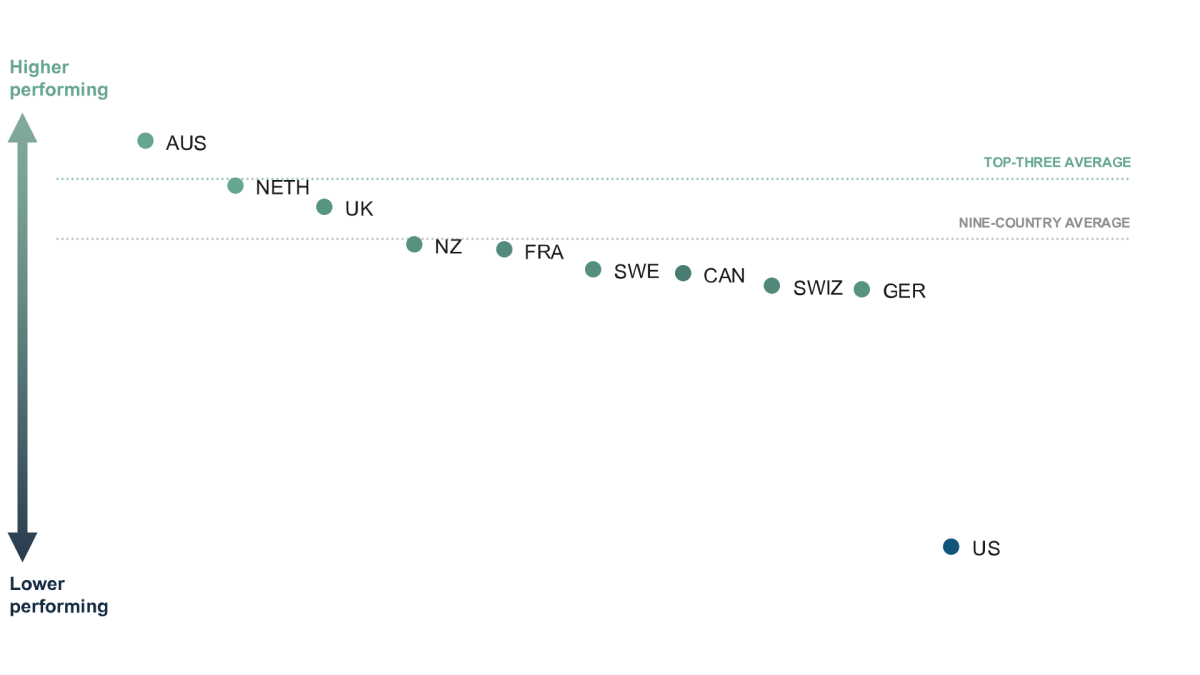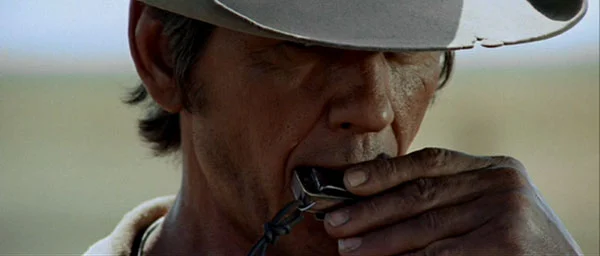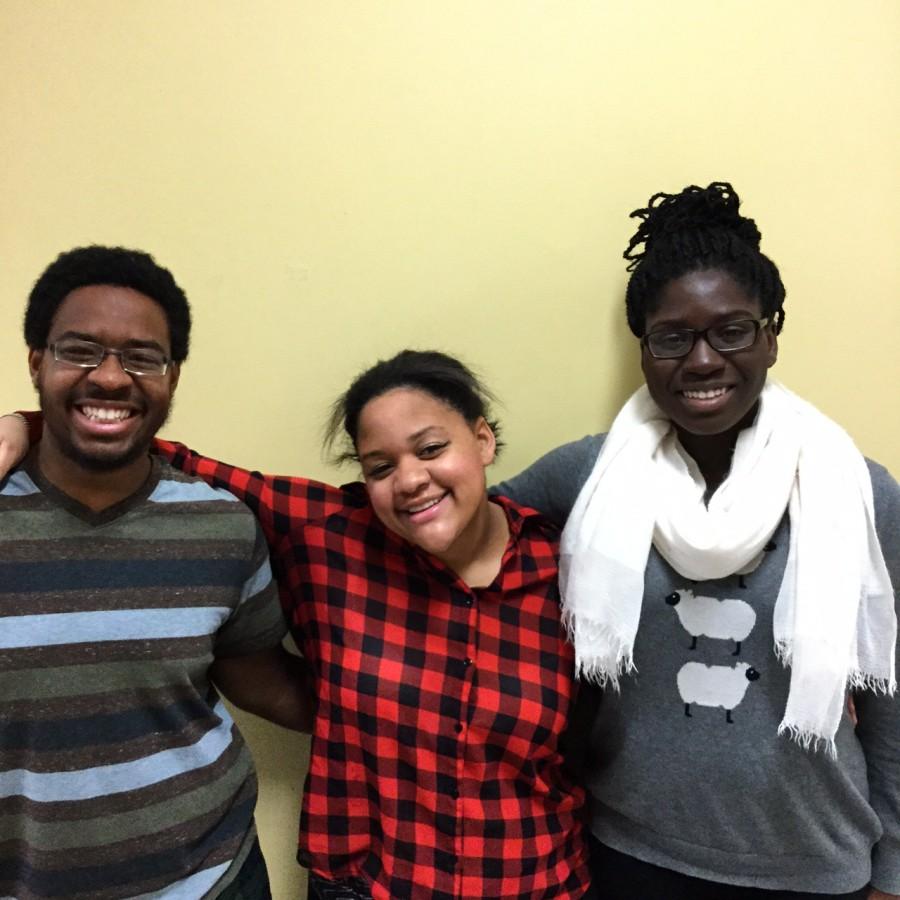African-American students share experiences, discuss race-related challenges
Imagine being the sole African-American student in a U.S. History I / II or American Literature class. Every time your teacher mentions slavery or racism, you instantly become a target of numerous wandering eyes and sideways glances. How does that make you feel?
Although most people might struggle to envision themselves in such a situation, seniors Brandon Harris, Joyce Omaiye, and Becca Stevenson, all of whom have attended schools in North Kingstown since kindergarten, have frequently become recipients of such unwanted attention during their 12+ years in a school district where just 4 percent of all students are black or multiracial. While Harris and Omaiye self-identify as African-American, Stevenson is biracial.
For example, Omaiye recalls an experience in her U.S. History I class in which the color of her skin made her feel uncomfortable. “When my teacher mentioned African-American soldiers during the Civil War, everyone suddenly looked at me as if I was there or something,” Omaiye said. “They acted like I was a male, African-American soldier from more than 150 years ago.”
Outside of school, Omaiye, Harris, and Stevenson likewise find themselves in awkward situations as a result of their physical appearances. For instance, white children, teenagers, and adults frequently take a special interest in the hair on top of Omaiye’s, Harris’s, and Stevenson’s heads.
“People often touch my hair, sometimes even without asking,” Stevenson said. “It definitely makes me uncomfortable, but especially when they do it without asking me first.”
Similarly, students and other members of the community hurt Omaiye’s feelings whenever they make comments about her hair being tangled. Omaiye’s hair requires a significant amount of attention, and she usually spends about an hour combing her hair each morning in order to make it as neat as possible. “I don’t like it when people say, ‘Do you need a comb?’” Omaiye said. “It makes me feel like my hair is messy, and I’ve also broken many combs by accident.”
The three seniors also acknowledge that racial stereotypes hurt both their feelings and those of the general African-American population. Omaiye, Harris, and Stevenson agree that they do not embody any major African-American stereotypes, and they perceive such stereotypes as being harmful for whites and blacks alike.
For example, Harris feels uncomfortable when other people try to dissociate him from his racial identity by telling him that his life doesn’t reflect the stereotypical image of an African-American male teenager.
“People tell me that I ‘act white’ because I don’t sag my pants, play basketball, or enjoy rap music and hip-hop,” Harris said.
Similarly, multiple individuals, including several NKHS students, have insulted Omaiye when they have said that she doesn’t conform to stereotypes regarding how African-American girls and women behave. “I’ve had white people tell me that I act ‘whiter’ than they do because they think that I’m not sassy enough,” she said.
Despite the fact that Omaiye, Harris, and Stevenson regularly receive unwanted attention on account of their skin colors, they do not consider themselves to be victims of racism.
The three seniors only want to share their race-related experiences with others in order to increase awareness of racial issues. “People usually aren’t aware of the effects that their words can have on others,” Omaiye said. “It’s important for them to know what makes African-Americans, as well as [members of other minorities] uncomfortable or upset so that everyone in a community can get along better.”
Besides the awkward situations that Harris occasionally finds himself in or the inconsiderate jokes and comments that others frequently make about his race, he cannot recall any time in which he has been subject to blatant discrimination. “Other than jokes, I haven’t really been called out for being black,” Harris said. “[I’ve had] a pretty good life so far.”
Omaiye, Harris, and Stevenson are all proud of their racial and ethnic identities, and they believe that the color of their skin is beneficial for several reasons.
“I am proud of my race,” Harris said. “I like that my hair is different than everyone else’s.”
Although Omaiye has lived in North Kingstown since she was a toddler, her parents immigrated to the U.S. from Nigeria. “I’m proud to be Nigerian and African-American,” Omaiye said. “I also like being able to rock head wraps.”
Stevenson, who likewise takes pride in her race, feels thankful because her adoptive parents, both of whom are Caucasian, do not treat her differently as a result of her skin color. “My race definitely doesn’t make things awkward at home,” she said. “My parents are very supportive.”
Stevenson, who was born in Providence, moved to North Kingstown with her adoptive parents when she was a few weeks old. She also has two other adoptive siblings, both of whom are biracial.
While Omaiye, Harris, and Stevenson support the “Black Lives Matter” movement that has emerged and grown in the wake of conflicts between African-Americans and police officers in cities like Sanford, Fla., Ferguson, Mo., and Baltimore, they do not agree with how some people are treating the movement.
“I support the idea behind ‘Black Lives Matter,’ but I don’t like how some people are acting as if it’s a trend,” Omaiye said. “[These types of conflicts have] been going on for centuries.”
Instead, Omaiye, Harris, and Stevenson feel that, rather than emphasizing racial differences or race-related problems, treating everyone equally is essential.
“We all have to treat each other as equals,” Omaiye said. “[People should not] make specific exceptions for any races.”
Even though the population of North Kingstown is predominantly Caucasian, Omaiye, Harris, and Stevenson agree that they have enjoyed spending their childhoods in the community.
“I don’t think that there’s any other place in the world where I would prefer to have grown up,” Stevenson said.
Your donation will support the student journalists of North Kingstown High School. Your contribution will allow us to distribute a print edition of the Current Wave to all students, as well as enter journalism competitions.

